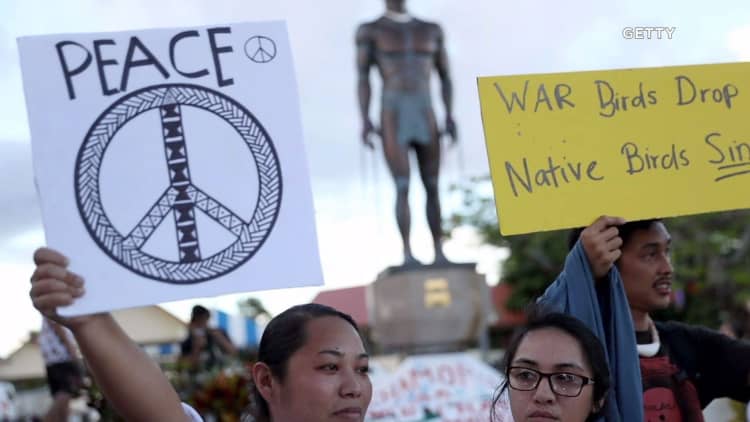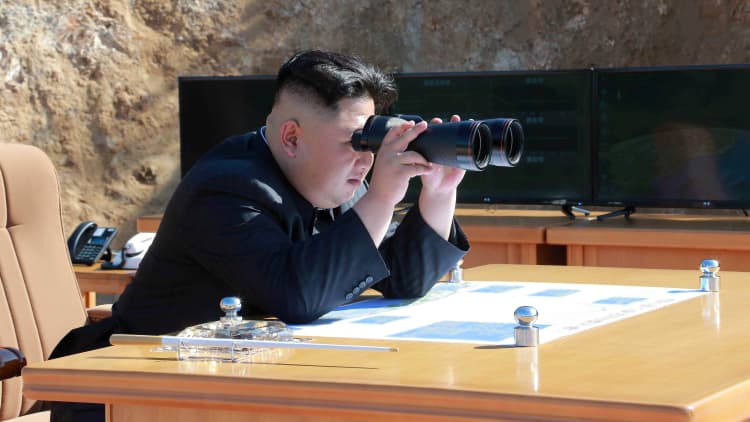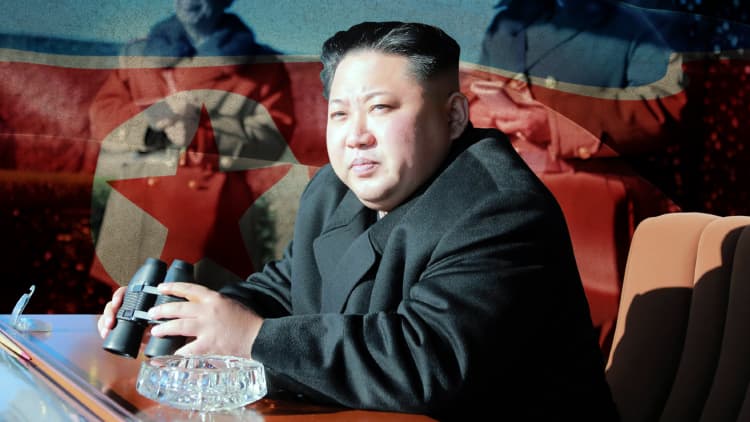
A movement toward greater self-governance, which could mean breaking away from the United States, is gaining momentum in Guam.
Although talk of independence is not new, the volume of that discussion has grown, potentially due to the heightened security risks that residents are feeling because of the island's ties to the U.S.
"Being a U.S. military base makes Guam a target," said Craig Santos Perez, a Guam native who serves as an affiliate faculty member with the Center for Pacific Islands Studies in Hawaii.
For the past few years, a growing number of Guam's residents have been trying to pull away from "the status of being a military island," according to Justin Guzman, a U.S.-based Guam native who lived in the territory for almost 30 years.
The threat
Recently, Guam has been singled out by North Korea as a possible missile target, and it was a topic of the war of words between President Donald Trump and Pyongyang's state media. Last Thursday, the rogue nation threatened to launch four missiles that would hit the waters just off the coast of Guam.
Kim has said it was targeting the island before, including in 2013, but many did not assume the most recent warning was an idle threat: Just a month ago, Pyongyang successfully tested a missile that could carry a nuclear warhead.
Still, tensions have eased following North Korea's Tuesday announcement that leader Kim Jong Un had decided to hold fire — for the time being.
Guam, with a population of 160,000, is the closest U.S. territory to North Korea, and naval and air bases currently occupy about a third of the island.

Apart from geopolitical risks, U.S. military presence has also brought about social and environmental harm to the island, according to Perez. The priority given to defense for land use "has often evicted people from their ancestral homeland" he said.
"The U.S. has also polluted the water around Guam due to weapons testing," he added.
But some residents also highlight the positives of the military presence, according to Guzman. Many locals harbor dreams of exploring the world beyond their island's shores and see military participation as an opportunity to achieve just that, he said. Guzman had previously served the military on the mainland for seven years, and is currently pursuing studies in Maryland.
'Our voices aren't being heard'
For over 100 years, Guam has remained under U.S. jurisdiction. Yet, to this day, residents from the island are not eligible to vote for the American president or to select members of Congress with voting power.
"Simply put, our voices aren't being heard," Kel Muna, a native Guam filmmaker, said of the islanders' inability to vote.
Politicians and activists have cooperated on exploring alternative options for Guam's political status in recent years. In 2011, Governor Eddie Baza Calvo relaunched the Commission on Decolonization, which seeks to educate residents on the three status options available: independence, free association, and full integration with the U.S. as a new state.
"They do public service announcements, they do town hall meetings. So they're getting it out to the community," Guzman said about the commission's efforts.
According to Guzman, achieving independence appears to be the most popular status option at this point. "I'd say it's at about 35 percent, but it's a growing sentiment," he said.
But some support statehood because they believe that being more integrated with the U.S. would grant the island greater rights and power, according to Perez.
Through education and outreach, the commision hopes that residents will ultimately be able to make an informed choice in a plebiscite that could take place as soon as next year, said Lisa Natividad, a commission member who is also on faculty at the University of Guam.
Absent from discussions for 10 years
Guam's commission is currently working with a United Nations special committee in order to negotiate a change in the territory's political status. Yet, commission members often find themselves speaking to empty seats, Natividad said.
"The United States really doesn't work or participate in the UN process for decolonization through the decolonization committee. So while we have these regional seminars every year, and representatives from the administering power should be present so we can talk about these issues and work together ... the United States almost never participates," she said.
"And I believe this has been the case for over ten years now."
Guam is home to a Terminal High Altitude Area Defense (THAAD) system, designed to intercept and shoot down ballistic missiles. Located in the Pacific Ocean, it has historically been seen as a key strategic military base for the U.S.
WATCH: Here's why North Korea is targeting Guam


